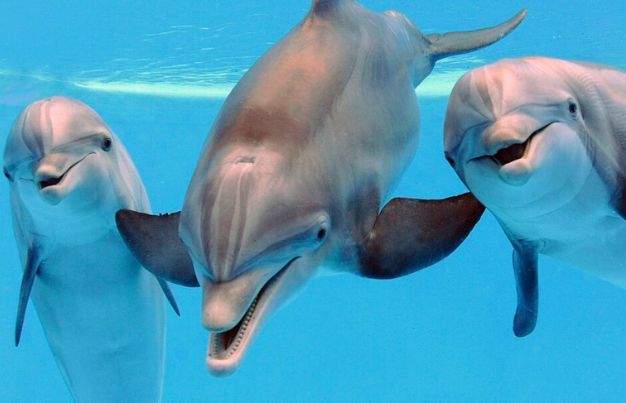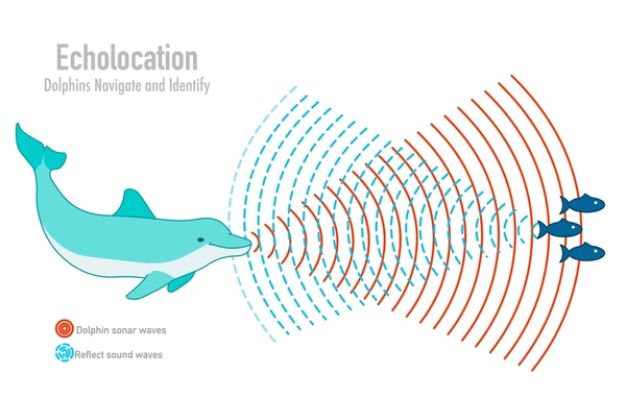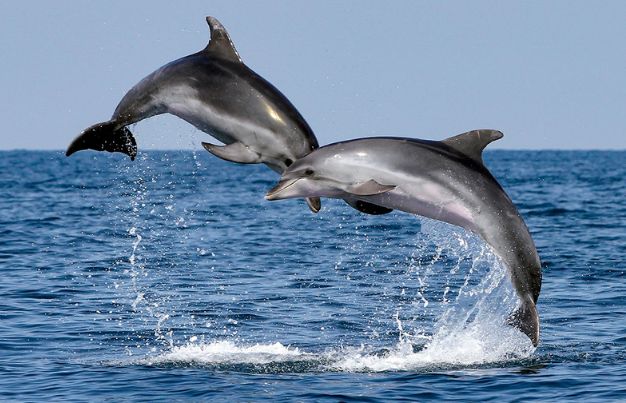Dolphins have fascinated humans for centuries, not just for their intelligence but for their playful nature, communication skills, and social structures. In this article, we’ll explore 50 scientifically grounded and truly fascinating dolphin fun facts, ideal for kids, educators, marine life enthusiasts, and researchers. From how long dolphins live to the secrets of Hector’s dolphin, this compilation offers facts that are both fun and educational.

Table of Contents
General Dolphin Fun Facts
- Dolphins are marine mammals, not fish.
- There are over 40 different dolphin species.
- Dolphins breathe through a blowhole, not their mouths.
- A dolphin can hold its breath for 8 to 10 minutes.
- Bottlenose dolphins are the most common species.
- Dolphins can recognize themselves in mirrors—an indicator of self-awareness.
- They sleep with one eye open.
- Dolphins use echolocation to find food and navigate murky waters.
- Their brains are larger relative to body size than those of humans.
- Dolphins communicate using a complex system of clicks and whistles.

Unique Biological Facts
- Dolphins have two stomachs—one for storage, one for digestion.
- The average dolphin lifespan is between 20 to 60 years depending on species.
- Calves (baby dolphins) stay with their mothers for up to 6 years.
- Dolphins give birth tail-first to prevent drowning during labor.
- Their skin regenerates every two hours.
- Dolphins can swim up to 25 miles per hour.
- A dolphin’s dorsal fin is as unique as a human fingerprint.
- They don’t have a sense of smell.
- Dolphin ears are located just behind their eyes.
- Dolphins have a three-chambered stomach, much like ruminants.
Social and Behavioral Facts
- Dolphins form pods that range from 5 to over 100 individuals.
- They engage in cooperative hunting strategies.
- Dolphins are known to help injured members of their pod.
- They also play games, such as passing seaweed or leaping in unison.
- Some species of dolphins have been observed using tools.
- They can mimic human sounds and even words.
- Dolphins have a signature whistle—like a name.
- Cross-species interaction between dolphins and whales has been documented.
- Mothers sing to their calves in the womb.
- Dolphins display mourning behavior toward dead pod mates.

Habitat and Distribution Facts
- Dolphins live in oceans, rivers, and even coastal estuaries.
- River dolphins inhabit freshwater rivers like the Amazon and Ganges.
- Most dolphin species prefer warm, tropical waters.
- Dolphins migrate based on food availability and water temperature.
- Coastal dolphins are more social than offshore species.
- Dolphins are found on every continent except Antarctica.
- The Maui dolphin, a subspecies of Hector’s dolphin, is critically endangered.
- Dolphins often follow boats out of curiosity or to catch fish stirred by propellers.
- They use landmarks and ocean currents to navigate.
- Marine biologists use satellite tagging to track dolphin migration.

Rare and Hector’s Dolphin Facts
- Hector’s dolphin is one of the smallest marine dolphins, growing up to 1.5 meters.
- They are native only to the coastal waters of New Zealand.
- Hector’s dolphins live up to 20 years in the wild.
- They have a unique rounded dorsal fin—unlike the pointed fin of bottlenose dolphins.
- Their population is estimated to be below 10,000.
- The Maui dolphin, a subspecies of Hector’s, has fewer than 100 individuals left.
- Conservation efforts include marine sanctuaries and fishing restrictions.
- Hector’s dolphins feed primarily on small fish and squid.
- They tend to live in small groups of 2 to 8 dolphins.
- Scientists are using drone technology to better understand Hector’s dolphin behavior.
Conclusion: Why Dolphin Facts Matter
Understanding these dolphin fun facts not only feeds curiosity but also raises awareness about marine conservation. From their cognitive abilities to endangered subspecies like Hector’s dolphin, dolphins are truly exceptional creatures. Whether you’re a student, teacher, or nature lover, sharing these facts can inspire a deeper appreciation for ocean life.
FAQs
1. What is a fun fact about a dolphin?
A fun fact is that dolphins have been observed giving each other names using signature whistles, much like humans use personal names!
2. [www.dolphins.org kids dolphin facts] How old do they get?
Dolphins can live from 20 to 60 years depending on the species. Bottlenose dolphins commonly live up to 40–50 years in the wild, and even longer in protected environments.
3. What are some fun facts about Hector’s dolphin?
Hector’s dolphins are the smallest dolphin species, found only around New Zealand. They have a rounded dorsal fin, live in small groups, and are critically endangered.









